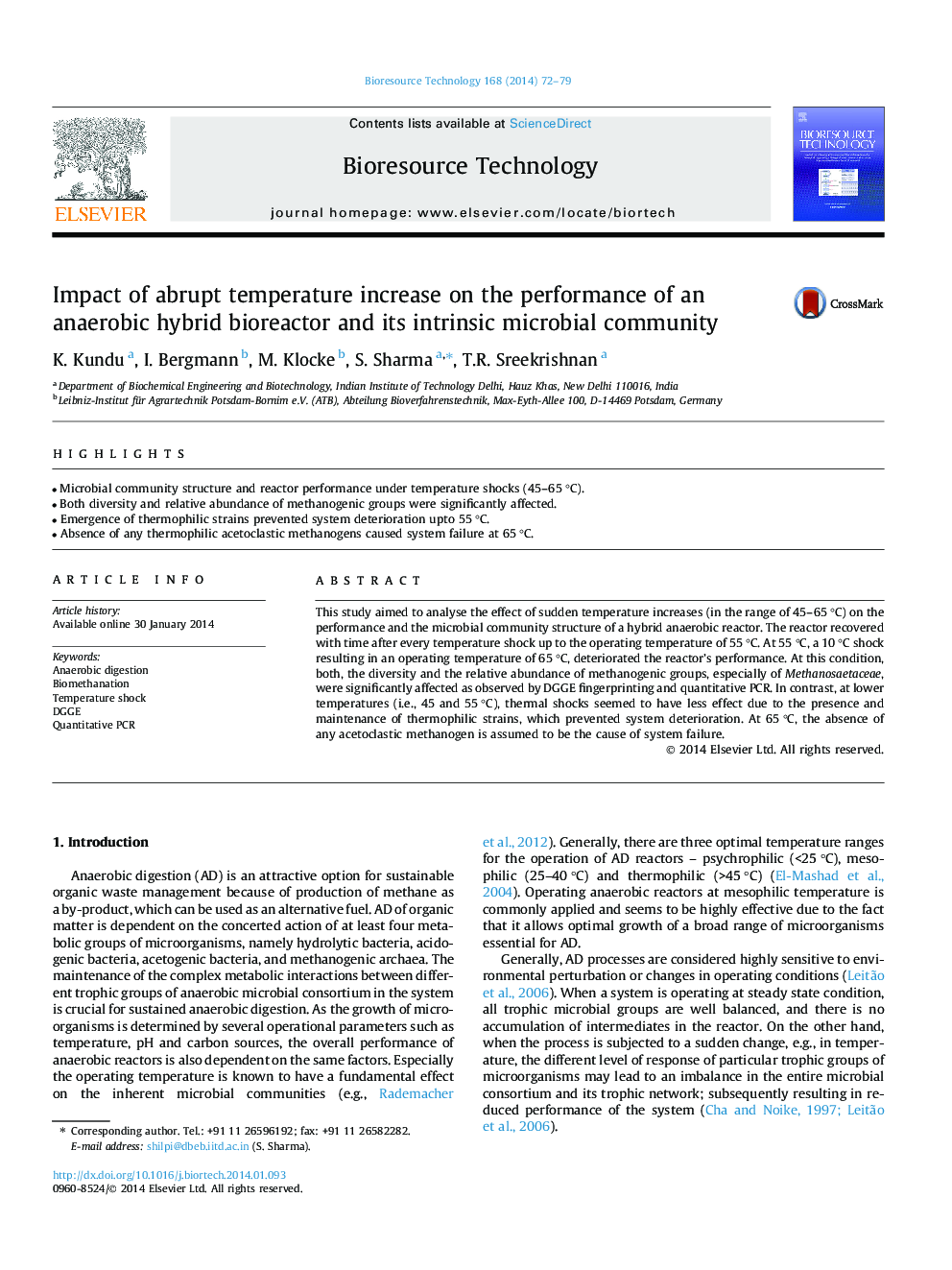| Article ID | Journal | Published Year | Pages | File Type |
|---|---|---|---|---|
| 680568 | Bioresource Technology | 2014 | 8 Pages |
•Microbial community structure and reactor performance under temperature shocks (45–65 °C).•Both diversity and relative abundance of methanogenic groups were significantly affected.•Emergence of thermophilic strains prevented system deterioration upto 55 °C.•Absence of any thermophilic acetoclastic methanogens caused system failure at 65 °C.
This study aimed to analyse the effect of sudden temperature increases (in the range of 45–65 °C) on the performance and the microbial community structure of a hybrid anaerobic reactor. The reactor recovered with time after every temperature shock up to the operating temperature of 55 °C. At 55 °C, a 10 °C shock resulting in an operating temperature of 65 °C, deteriorated the reactor’s performance. At this condition, both, the diversity and the relative abundance of methanogenic groups, especially of Methanosaetaceae, were significantly affected as observed by DGGE fingerprinting and quantitative PCR. In contrast, at lower temperatures (i.e., 45 and 55 °C), thermal shocks seemed to have less effect due to the presence and maintenance of thermophilic strains, which prevented system deterioration. At 65 °C, the absence of any acetoclastic methanogen is assumed to be the cause of system failure.
